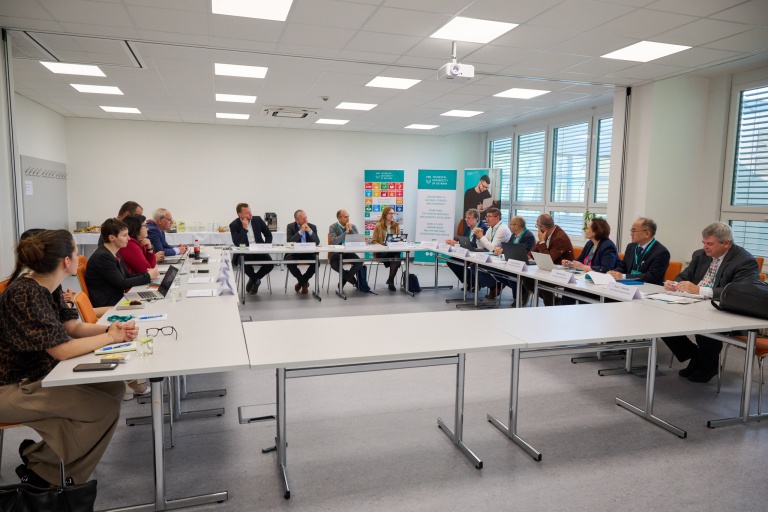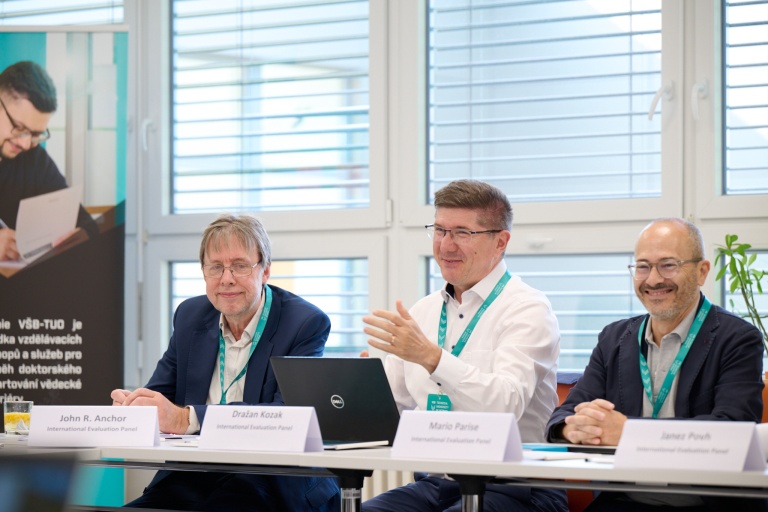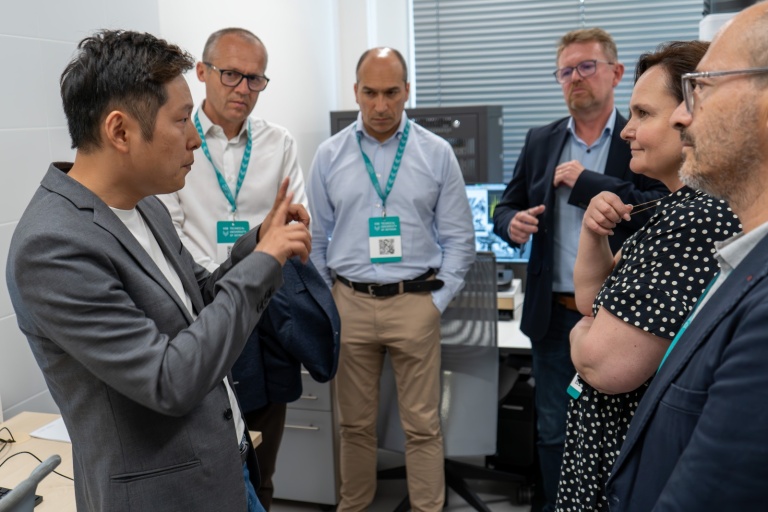Science and research in focus during international evaluation visit to VSB-TUO
Over several days, panel members engaged in discussions with University Management, representatives of faculties and research institutes. These meetings offered a comprehensive view of how VSB-TUO has fulfilled the objectives of Modules 3 to 5 outlined in the national research assessment framework known as Methodology 17+ over the past five years. The panel’s final report will play a key role in decisions regarding future University funding and strategic development.
The on-site evaluation brought together eight international experts from Japan, the USA, the United Kingdom, Croatia, Slovenia, Portugal, Italy, and Poland. During their three-day visit, the evaluators met with representatives across all parts of the University to learn about its key characteristics, organisational structure, and research activities. Each closed session typically concluded with discussions followed by guided tours of laboratories and research facilities, providing IEP with first-hand insight into the University’s research infrastructure and technical capabilities.

"The visit of the international evaluators was highly significant, particularly in the context of the upcoming assessment based on the Methodology 2025+. Beyond that, however, it took on additional meaning. Not only did we provide information on the monitored areas at individual faculties, the IT4Innovations National Supercomputing Center, and the Centre for Energy and Environmental Technologies, but we also demonstrated our ability to collaborate across the University as one team. It was not about competition between units, but about collective effort to advance the University as a whole. The visit also brought valuable feedback and numerous recommendations," said Jana Kukutschová, Vice-Rector for Science and Research.

The University Management focused its presentation on key changes, recent developments and trends from the past five years. The research strategy, participation in European projects, and selected key initiatives were also introduced. A major topic of discussion was doctoral education, including recent changes in legislation affecting PhD students. The panel also engaged in conversations with researchers, academic staff, and PhD students. Key themes included interdisciplinarity, international collaboration, funding, principles of open science, project acquisition, and more. The results of the panel’s evaluation will be published in the coming months, with the final report expected in November.

This year marks the second comprehensive evaluation of research institutions in the Czech Republic within the higher education sector, conducted under the new Methodology 2025+. As part of this process, university evaluations include not only self-assessment reports and subject-specific reviews under Module 3, but also in-person visits by evaluators (IEP on-site visits).
Text: Martina Šaradínová, REFRESH Project Manager
Photo credit: Petr Havlíček and CEET